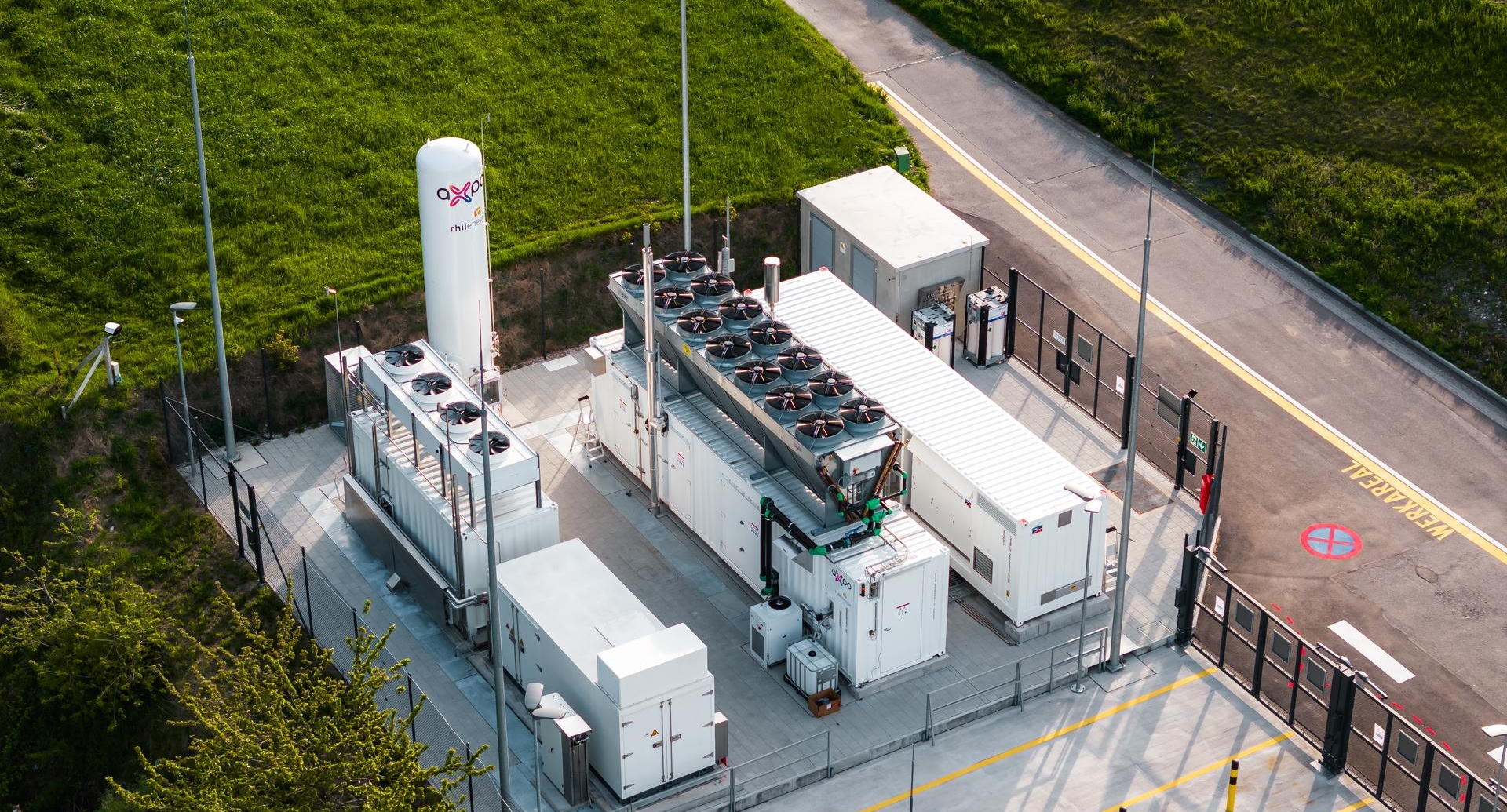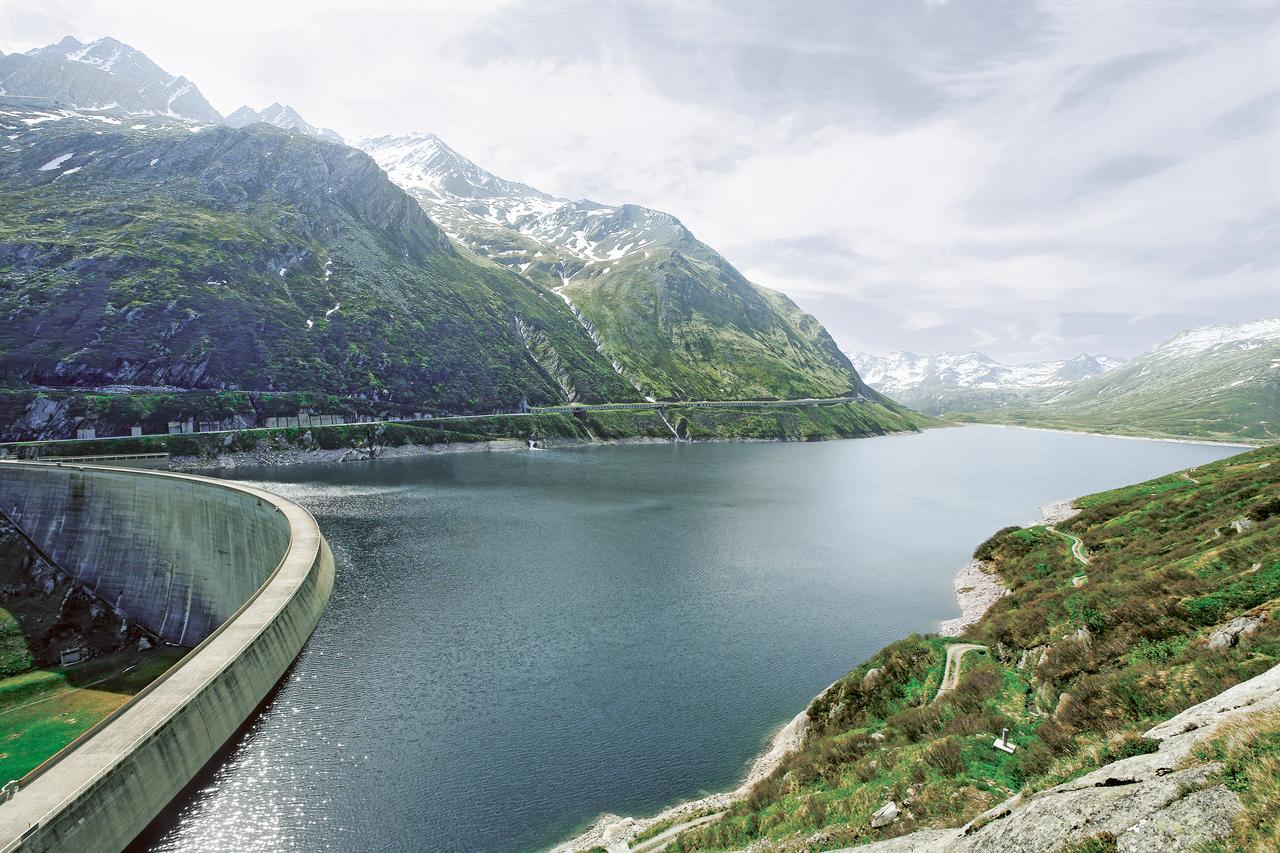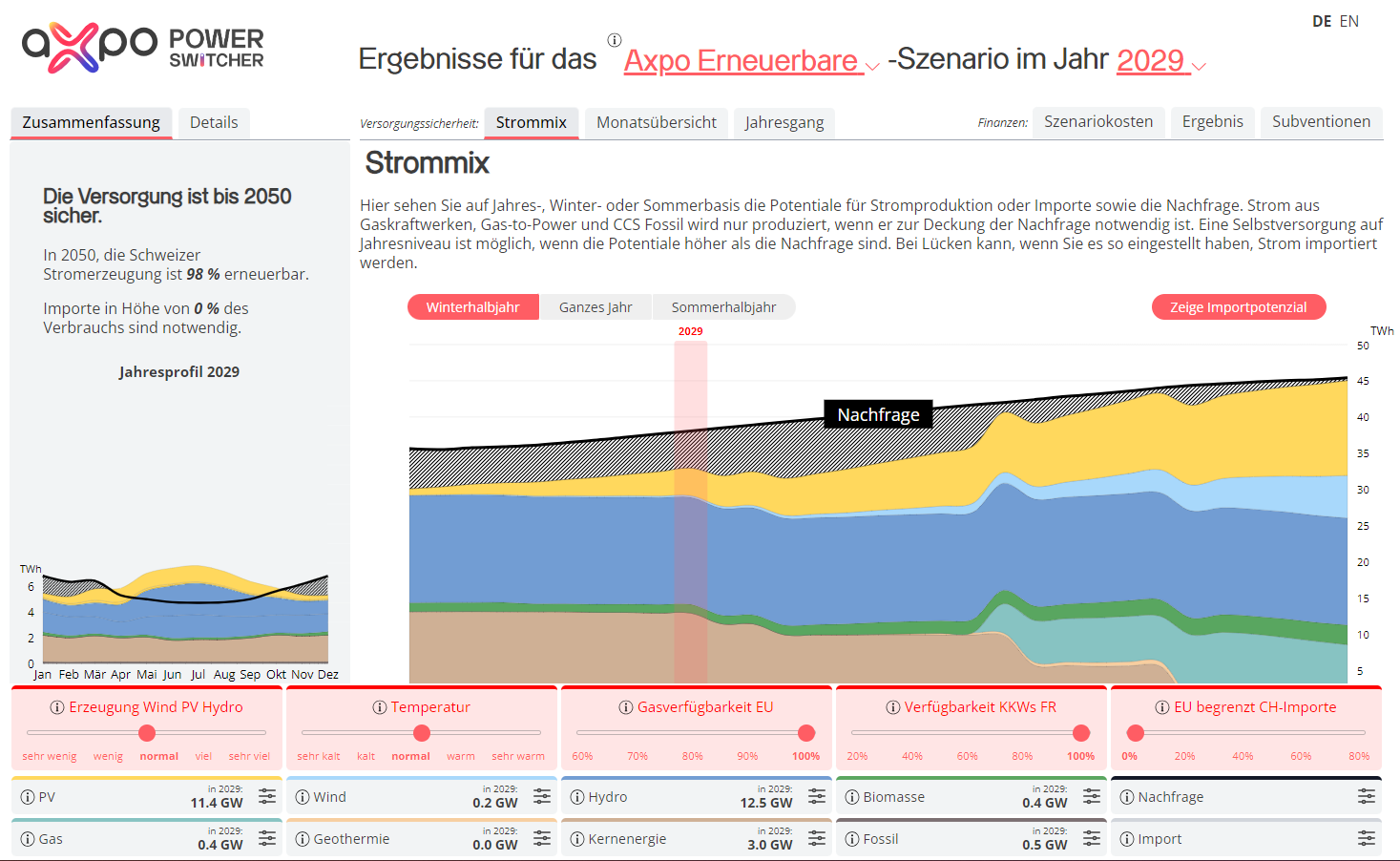

For visitors Our plant in Domat/Ems
360° video
Axpo and its local partner Rhiienergie opened the first hydrogen production plant for green hydrogen in the canton of Graubünden at the end of April 2024. The plant produces up to 350 tons of hydrogen annually and is located directly next to the Reichenau hydroelectric power plant in Domat/Ems. It is the largest of its kind to date. The inclusion of hydrogen in the energy mix will help to strengthen security of supply. Immerse yourself in the 360-degree tour of our H₂ facility in Domat/Ems.

Electrolyser
The electrolyser uses electrical energy to split water (H₂O) into its components hydrogen (H₂) and oxygen (O₂). This process is called electrolysis and is a key technology for producing green hydrogen, when the electricity source is renewable.
The production capacity of the electrolyzer is 45 kg of hydrogen per hour (equivalent to 500 Nm³/h) – enough for a range of around 9,000 km with a Tesla Model Y.
Electrolyser
MW
installed capacity
purity
equivalent to an H₂ content of 99.999%
bar
output pressure
Temporary storage
An intermediate hydrogen storage system compensates for the fluctuations between production (electrolysis) and compression (compressor) and thus enables more efficient and gentler operation of the compressor.
In addition, the temporary storage system ensures that the electrolyser and compressor are mechanically decoupled - for more stable and efficient plant operation.
The 34 kilograms of hydrogen stored in the intermediate storage contain as much energy as is needed for around 6,800 kilometers of driving a Tesla Model Y.
Key figures of our temporary storage system:
m³ volume
or ≈34 kg H₂
bar
pressure
metres
tall
Compressor
A hydrogen compressor compresses hydrogen to a higher pressure in order to efficiently transport it, store it or make it usable for industrial applications.
The compressor features two-stage diaphragm technology and is actively cooled – for efficient, long-lasting operation even under high pressure.
Key figures about our compressor:
kW
power
bar
output pressure
stage
diaphragm technology
Filling stations and storage containers
Hydrogen filling stations at a production plant are used to safely and efficiently transfer the hydrogen produced into transport containers. They are a central interface between hydrogen production and distribution to end consumers.
Hydrogen storage containers enable the safe and efficient transport of hydrogen from the production plant to the end users. They are a central link between production and use.
At the Domat/Ems plant, two filling stations with 200 bar and two with 300 bar are available. Both Type I steel cylinders (200 bar) and Type IV containers made of plastic fibres (300 bar, up to 500 bar in the future) are used. The storage capacity per container is between 300 and 1200 kg, depending on the version. The charging time varies between 7 and 27 hours, depending on the storage capacity of the container.
kg
storage capacity per container
hours
of filling time
filling stations
200 and 300 bar




.jpg)






